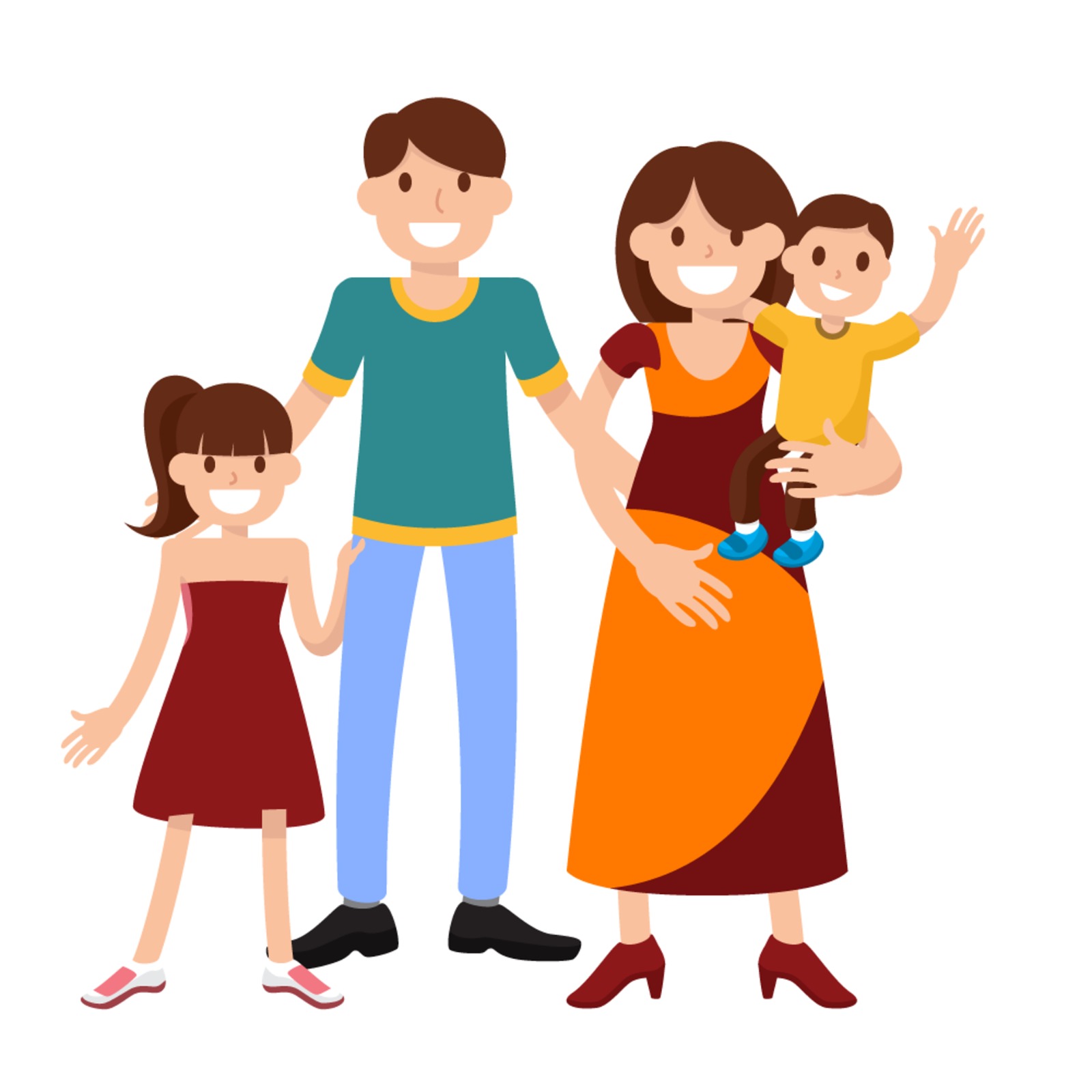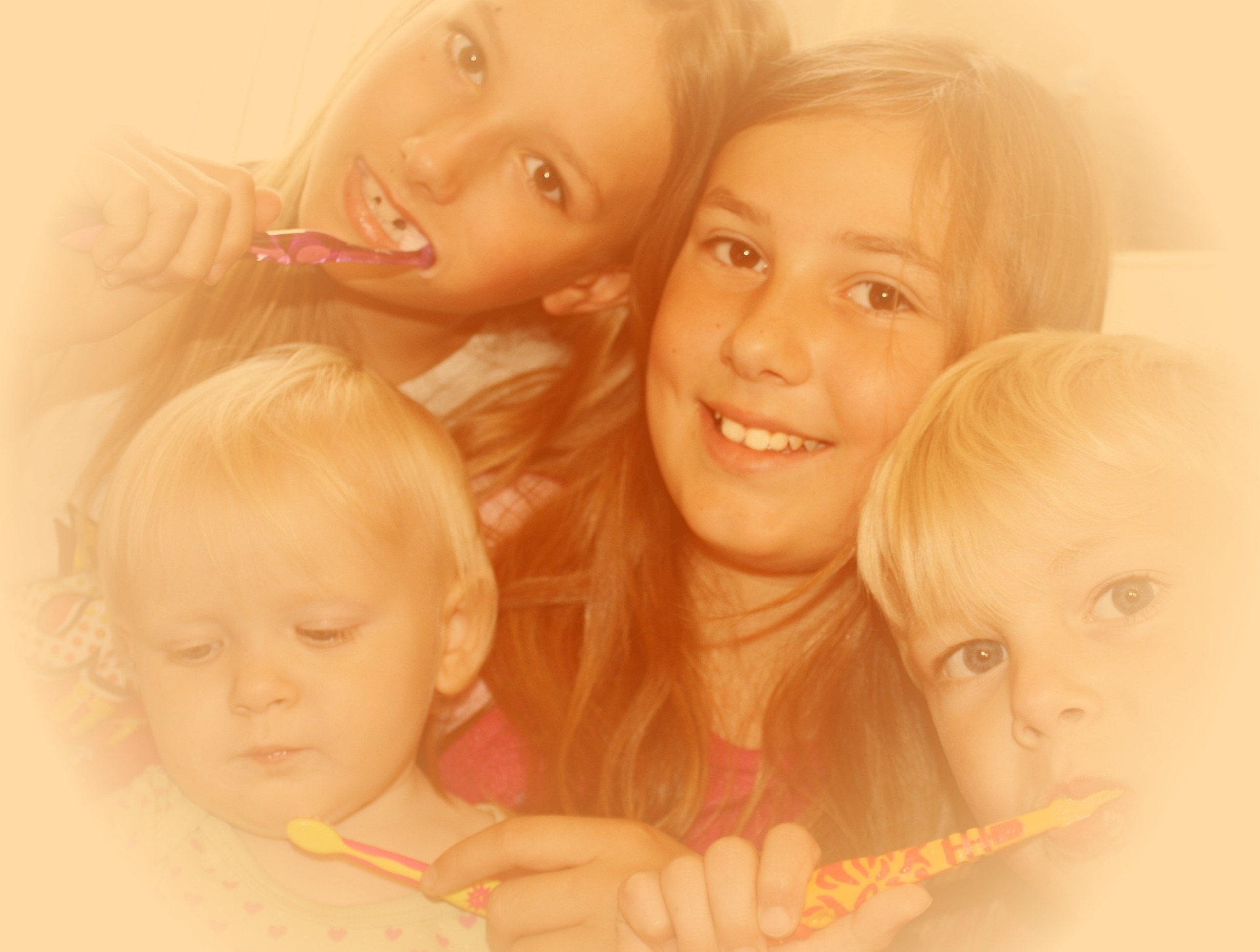Raising healthy and confident children who learn to laugh at themselves is both a social and parental responsibility. To fulfil our responsibility as conscientious parents, it is important to teach our children about the significance of practicing proper oral hygiene. Brushing our children's teeth as soon as their first teeth sprout, between 6 and 8 months of age, is a crucial initial step in protecting their lifelong oral health.
During this time, it's best to clean the teeth with a piece of clean cloth or gauze after each meal and before bed. It is especially important for toddlers to develop the habit of brushing their teeth, as the approach is sometimes challenging to practice at this age.

Introducing toothbrush habits to young children
You should begin using a toothbrush when the first permanent teeth come in, which is often between the ages of 2.5 and 3. Make it a habit to brush your teeth for two and a half to three minutes every day, ideally after each meal. Good dental hygiene as an adult depends on instilling this habit from an early age. Mothers typically learn this skill during their child's preschool education.
These centres may help children with dental health education and follow-up appointments. It is Ok to skip the morning brushing since cleaning the teeth is done twice a day. Even if preschool teachers stress the need to brush their teeth after every meal, this might change. Impact of diet on kids' oral health.
Dietary habits also impact oral hygiene
For shiny and healthy teeth and gums, it is best to start the day with dairy, tea, cheese, and eggs. Consider the potential effects on the teeth and gums of the many lunchtime foods that are heavy in sugar and starch.
For kids to keep their teeth cavity-free, it's not enough to only brush the visible parts; they also need to clean the areas where they bite and the spaces in between their teeth. Educators must, therefore, take paramount control after brushing.
Tooth Brushing Habit
The first thing to be done to teach children the habit of brushing their teeth is to set an example for them. Children always learn life by imitating their elders. If the elders in the family, mother, father, siblings or other family elders have the habit of brushing teeth, the child will imitate the family.
When babies are only 6 month old, their first teeth begin to come out. After the first permanent teeth come out, parents should clean the teeth. You should begin using a toothbrush when the first permanent teeth come in, which is often between the ages of 2.5 and 3.
Of course, choosing children's toothbrushes suitable for the child's oral structure makes it easier to gain the habit of brushing teeth.
How can tooth brushing be endeared to children?
Children like to learn everything through play and imitation. Children whose family members brush their teeth regularly will both imitate them and in families that make tooth brushing a game, the child will acquire the habit of brushing teeth while playing. Instead of giving orders to the child (brush your teeth, put on your pyjamas...), doing the behaviours that the child should do together provides more effective results. Brushing teeth together with the child is important in this respect.
Doing the same things at the same times throughout infancy and childhood makes things easier for both the family and the child. Children like routine and adapt to routine more easily. For this reason, just as the child's sleep time is certain, the tooth brushing routine should also be certain. Teeth should be brushed regularly every day after meals or before going to bed.
In addition, children's toothbrushes are also designed in a very remarkable way. Children's toothbrushes with pictures of the child's favourite heroes can also encourage the child to brush their teeth.
What should be considered when teaching children the habit of brushing their teeth?
It is necessary to ensure that the child has fun while brushing teeth as much as possible. Apart from this, some important points should not be skipped. These are:
- Teeth should be brushed every day within a routine,
- Children's toothbrushes, that is, toothbrushes with hardness and softness suitable for the child should be preferred,
- Children's toothpastes should be used,
- Apply a small amount of paste to the brush,
- The child should be taught not to swallow the paste,
- Teeth should be brushed for 2-3 minutes,
- Correct and effective tooth brushing should be taught,
- It should be helped to reach all surfaces of the teeth.
- The younger the child gains the habit of brushing his/her teeth correctly and effectively, the less likely he/she is to have carious dental problems in the following years.
Why is it important to give children the habit of brushing their teeth?

By giving the child the habit of brushing teeth at a young age:
The child learns to do self-care at a young age.
Tooth decays that occur at a young age are prevented. It is very important for the child to have ideal oral and dental health for physical health. Tooth decay can trigger many diseases.
The child should maintain the habit of brushing teeth for a lifetime. For this, the younger the child acquires this habit, the easier it is to maintain the habit.
The first step of healthy nutrition and development is chewing, which is the first stage of digestion. A child with decayed teeth or a child whose teeth have to be extracted at an early age due to decay cannot eat adequately or cannot chew what he/she eats. This situation negatively affects the development of the child.
If the milk teeth are extracted because they decay before the age when they should fall out, the child may experience slippage while the permanent teeth erupt. This causes tooth crowding. Orthodontic treatments may be required for crowded teeth.
Brushing teeth together with the child makes it easier for the child to gain a habit. Spending time with the child and doing activities with him/her contributes significantly to his/her intellectual development and improves self-care skills.
What should you pay attention to when brushing your child's teeth?
Brush your teeth together with your child. Spending time together will be good for you and him. At the same time, your child will model you while brushing their teeth.
First, ask the child to brush his/her teeth on his/her own, then help him/her in the missing places. Give your child the opportunity to develop and do self-care.
Buy a children's toothbrush together with your child. Allow him/her to choose the children's toothbrush he/she wants.
You can buy several brushes for your child at the same time. In this way, he brushes his teeth by changing brushes and has fun while brushing his teeth with the brush he wants. This fun can make it easier for your child to get into the habit of brushing teeth.
Make sure that your child can see himself in the mirror and use a step where he can reach the sink easily.
Ask your child to brush the teeth of his/her toys while playing.
Show your child the residue on his/her teeth with a mirror after eating sugar and junk food. Show the cleanliness of the teeth after tooth brushing. Encourage the child to clean his/her teeth.
It is as important to consume healthy foods to protect dental and physical health as tooth brushing habits. Make sure that your child does not consume too much harmful foods such as sugar, chocolate and chips.
Reward your child after brushing his/her teeth.
